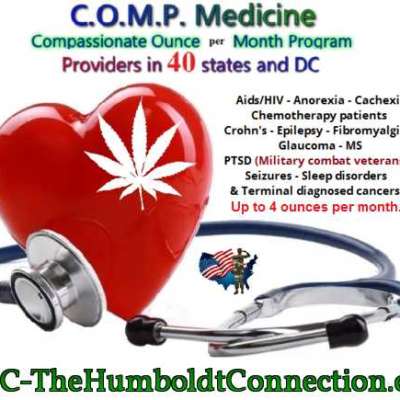
www.thegospelcoalition.org
Editor’s Pick: 7 Recent Theology Books
In 1949, the Evangelical Theological Society (ETS) was founded at a YMCA in Cincinnati as a society of scholars, theologians, and pastors who felt strongly that the Bible is true and that it’s the sole norm for evaluating theology. At that point in the history of evangelicalism, it was sometimes difficult for orthodox theologians to begin a theological discussion without first arguing for the fundamental reliability of Scripture.
Three-quarters of a century after ETS’s founding, we’re witnessing the fruit of that society: a generation of scholars who’ve benefited from the work of earlier evangelical theologians. We now have a space where promising young scholars can sharpen their theological skills, multiple seminaries committed to the orthodox faith, and a constellation of publishers looking for books that build on evangelical convictions.
In 2024, faithful evangelical publishers released hundreds of theologically orthodox and robustly biblical books. Though we still have work to do in defending Scripture from critical erosion, there’s now more intellectual space for theologians to explore narrower doctrinal topics with precision. We need this ongoing theological discourse in our constantly shifting culture.
The seven books on this list are evidence that the work of theological debate among evangelical scholars is bearing fruit and will continue to do so for years to come. More significantly, these books reflect theology done for the church, written to be accessible to pastors and church members.
1. Beholding the Triune God: The Inseparable Work of Father, Son, and Spirit by Matthew Y. Emerson and Brandon D. Smith (Crossway)
Evangelical presses have published a number of books on the doctrine of the Trinity in recent years. This book joins that growing field with an introduction to the inseparable operations of the three persons of the Trinity. It’s a welcome contribution because it provides an accessible entry point into this key orthodox doctrine. Academic study of Trinitarian theology can be baffling at first go as terms like taxis, ad extra, and processions are sometimes hard to grasp. But Emerson and Smith give definitions within the text, while including a glossary of important theological terms in the back.
The work of theological debate among evangelical scholars is bearing fruit and will continue to do so for years to come.
For example, they write, “The doctrine of inseparable operations teaches that you cannot separate the acts of God between the persons of God.” Thus while only Jesus became incarnate and suffered the penalty for sin, still all three persons participated in the incarnation. “It is the Father who sends the Son to the virgin’s womb, the Son who takes on human flesh in the virgin’s womb, and the Spirit who causes the virgin to miraculously conceive the incarnate Son,” they explain.
In simple terms, carefully explained, this book walks through the godhead’s unified activity in works that range from providing revelation, creating and sustaining the world, and finally judging the world. Beholding the Triune God is a gift to the church because it explains this complex and sometimes abstract doctrine as clearly and concretely as possible.
2. Angels & Demons: What the Bible Says About Spiritual Creatures by John R. Gilhooly (B&H)
I remember reading Frank Peretti’s novel This Present Darkness as a kid and taking his fantasy about literal battles between angels and demons in a small American town way too seriously. I know I’m not the only one, as on the internet I regularly encounter speculation about the nature of the spiritual combat Paul describes in Ephesians 6:12.
Gilhooly’s Angels & Demons argues we need to tap the brakes on this speculation and focus on Scripture. He writes, “The more I have studied angels in history and in the Scriptures, the more convinced I have become that we need to say less about angels: we just need to say less more clearly.” He then walks through all the biblical texts that deal with angels and demons.
It quickly becomes obvious that Scripture says a whole lot less about this interesting topic than most people think. Most of what we “know” about angels and demons are speculations or ideas borrowed from other religions. The message is clear in this book: Angels and demons are real, but they’re a background to the great story of salvation in Scripture. We shouldn’t ignore them, but Scripture gave us what we need to know about them—and it isn’t much.
This book is a thorough, biblical account of angelology. It belongs in a pastor’s library as a ready reference and would be good to give out to any church member who has questions about the doctrine.
3. Light Unapproachable: Divine Incomprehensibility and the Task of Theology by Ronni Kurtz (IVP Academic)
If God is incomprehensible, then how can we do theology? Kurtz diffuses that common misunderstanding as he demonstrates that “divine incomprehensibility is not merely affirming that God is un-comprehended.” Furthermore, it isn’t simply our fallenness that makes fully understanding God impossible. Rather, divine incomprehensibility is the result of our creatureliness—we can only know the Creator inasmuch as he reveals himself to us. And so divine incomprehensibility doesn’t mean we can’t know God but that we can never expect to know him fully.
Light Unapproachable is an exemplary book. It’s accessible to those with some theological knowledge, but it’s academically robust. It demonstrates faithfulness to historical orthodoxy while addressing contemporary concerns about how we come to know truth. Most significantly, the book’s underlying purpose is evident on every page: “For readers . . . [to] find an impetus for delight and a well of joy in contemplating the incomprehensibility of God.” This is theology as worship.
4. One with My Lord: The Life-Changing Reality of Being in Christ by Sam Allberry (Crossway)
It can be challenging to articulate what it means to be a Christian. We’re Christ-followers, yet we often don’t follow well. We have a relationship with Jesus, but sometimes we go days without talking with him. According to these descriptions, we aren’t very good at being Christians, and that can be a tough burden to bear.
But what if being Christian is actually being in Christ? In this encouraging, accessible volume, Allberry explores our union with Christ. He shows this way of thinking about ourselves as believers is rooted in Christian orthodoxy and is spiritually revitalizing in an age so focused on establishing our identity. Being in Christ “is the Bible’s primary way of talking about what it means to be a follower of Jesus.”
This book, which garnered an award of distinction in The Gospel Coalition’s 2024 book awards, has the potential to change the way we look at the world as we understand that our identity is provided by God when we’re united with Christ through salvation. Moreover, understanding our identity this way reminds us that “whatever else might be true of [us] in this world . . . nothing can take away from the surest reality: being in Christ.”
5. The Unvarnished Jesus: The Beauty of Christ and His Ugly Rivals by Samuel G. Parkison (Christian Focus)
Every culture tries to reshape Jesus after its own image. In our time, this has resulted in versions of Jesus that are extremely macho and others that seem effeminate and weak. Amid these diverse redefinitions, Parkison reminds readers that “Jesus Christ is the most beautiful man ever to exist.” He grounds that claim in Christ’s deity and in the fact that beauty is an attribute of God (cf. Ps. 27:4). Thus the book works to both revise our cultural ideals of beauty and point out how Christ fulfills the biblical ideal of beauty.
This is an example of theology for the church done well. As Parkison explores topics like the incarnation, the hypostatic union, and the atonement, he remains rooted in Scripture, connected to the great tradition, and aware of his audience. It’s written to regular church members, not theologians, so it includes a glossary of necessary terms and plenty of concrete illustrations to draw readers into a deeper enjoyment of Christ, our beautiful Savior.
6. Confessing Christ: An Invitation to Baptist Dogmatics edited by Steven A. McKinion, Christine E. Thornton, and Keith S. Whitfield (B&H Academic)
A group of Baptist theologians gathered together over several years to explore what it means to theologize as Baptists for the church. The product of that gathering was “The Baptist Dogmatics Manifesto” and this book, which reflects the “collective voice of a community dedicated to shaping Baptist theology.”
Though Baptists don’t hold to one common confession, there are historical, ecclesial, covenantal, and confessional signposts that distinguish the Baptistic tradition. Each chapter in this volume takes up a traditional doctrinal heading (e.g., Scripture, anthropology, soteriology) and explores it by following these signposts. The result isn’t a systematic theology but a collection of exemplary essays that demonstrate the value of Baptist theology for the great tradition. I hope this is the beginning of a rich conversation among Baptists who love the church and long to help the church do theology well.
7. Reformed Covenant Theology: A Systematic Introduction by Harrison Perkins (Lexham Academic)
The Reformed tradition’s confessional beauty often gets obscured by perpetual debates over baptism, as if the only distinctive of covenant theology is who should get baptized and how. That’s tragic because there’s so much more to the tradition, which is one reason this volume is such a gift to the church. Instead of engaging in the baptism debate, Perkins focuses on “Christ, salvation’s nature, the law-gospel distinction, and the distribution of God’s promises . . . hoping that various Protestant traditions can appreciate anew some fundamental aspects of covenant theology and deploy them well within distinct confessional traditions.”
As a Baptist with a love for John Calvin and Herman Bavinck, I’ve been looking for a volume to more systematically help me understand my confessionally Reformed brothers and sisters in Christ. We share so much in common theologically, yet there are obvious points of doctrinal distinction. Perkins, a pastor-theologian, graciously and clearly explains the distinctions of Reformed covenant theology in an intellectually robust but accessible volume. This is the book I’ll recommend to those who ask me what Reformed covenant theology is all about.














